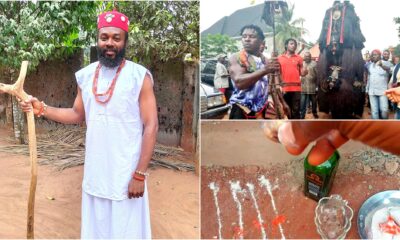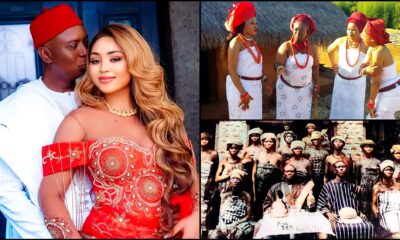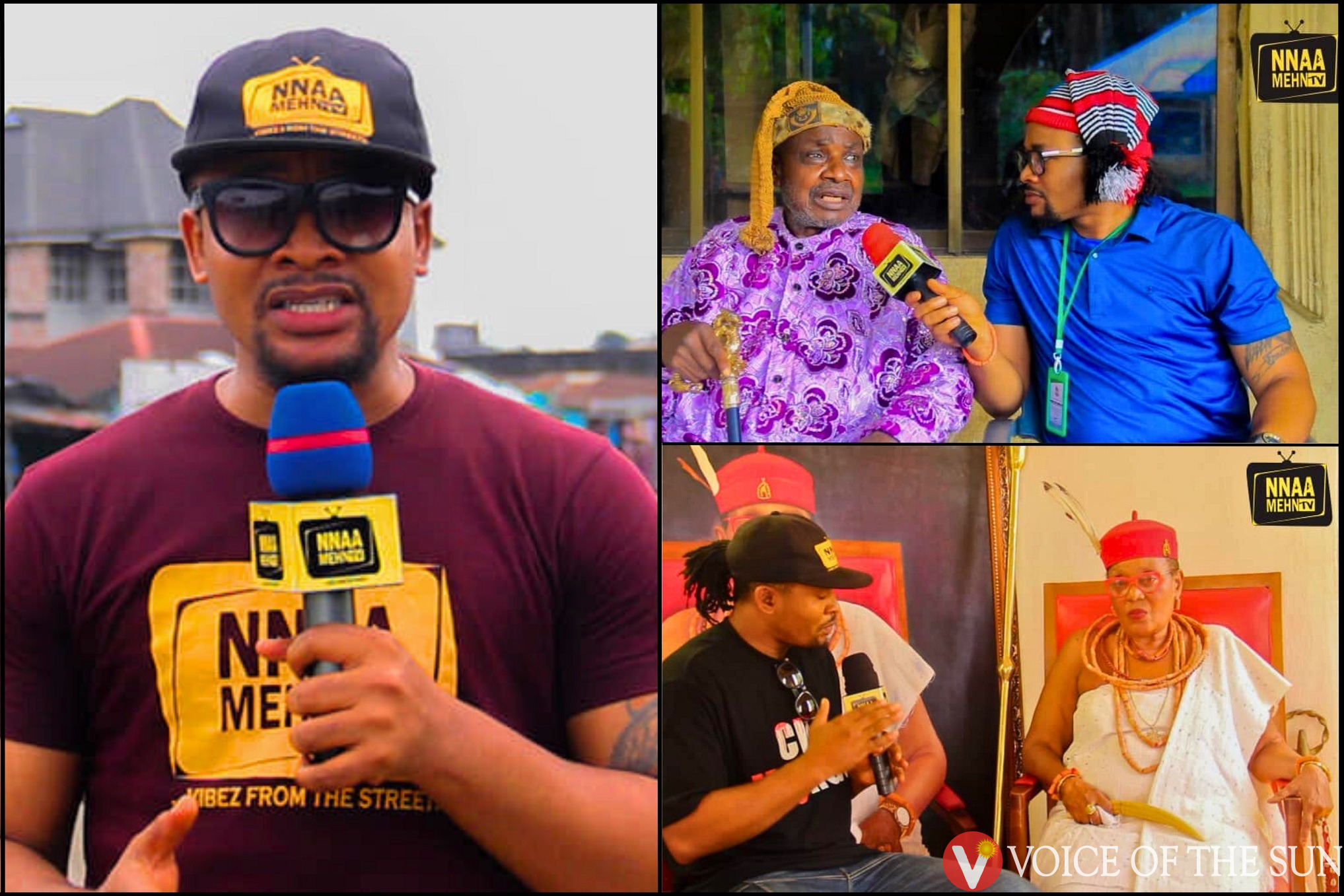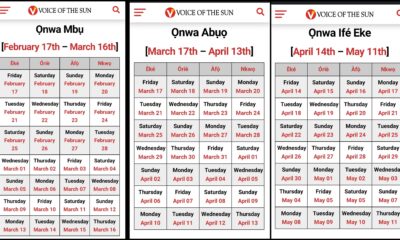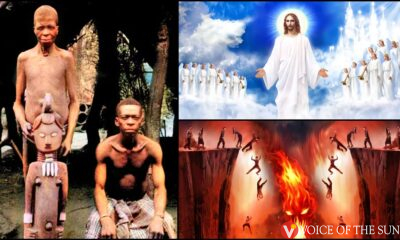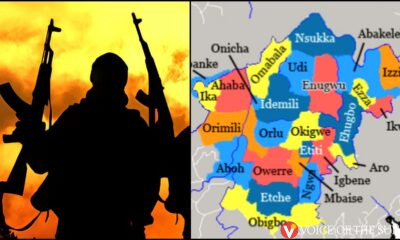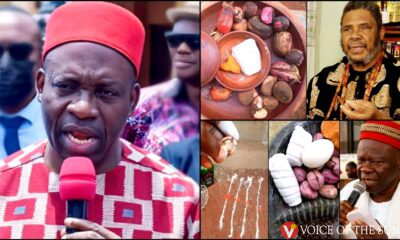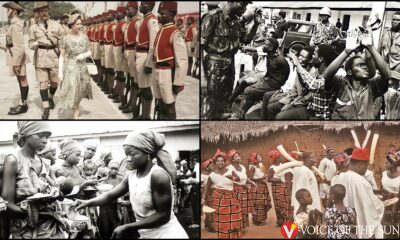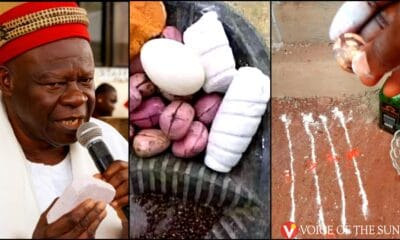Igbo History and Origins
A Brief History Of Nri As One Of The Pillars Of Igbo Civilization
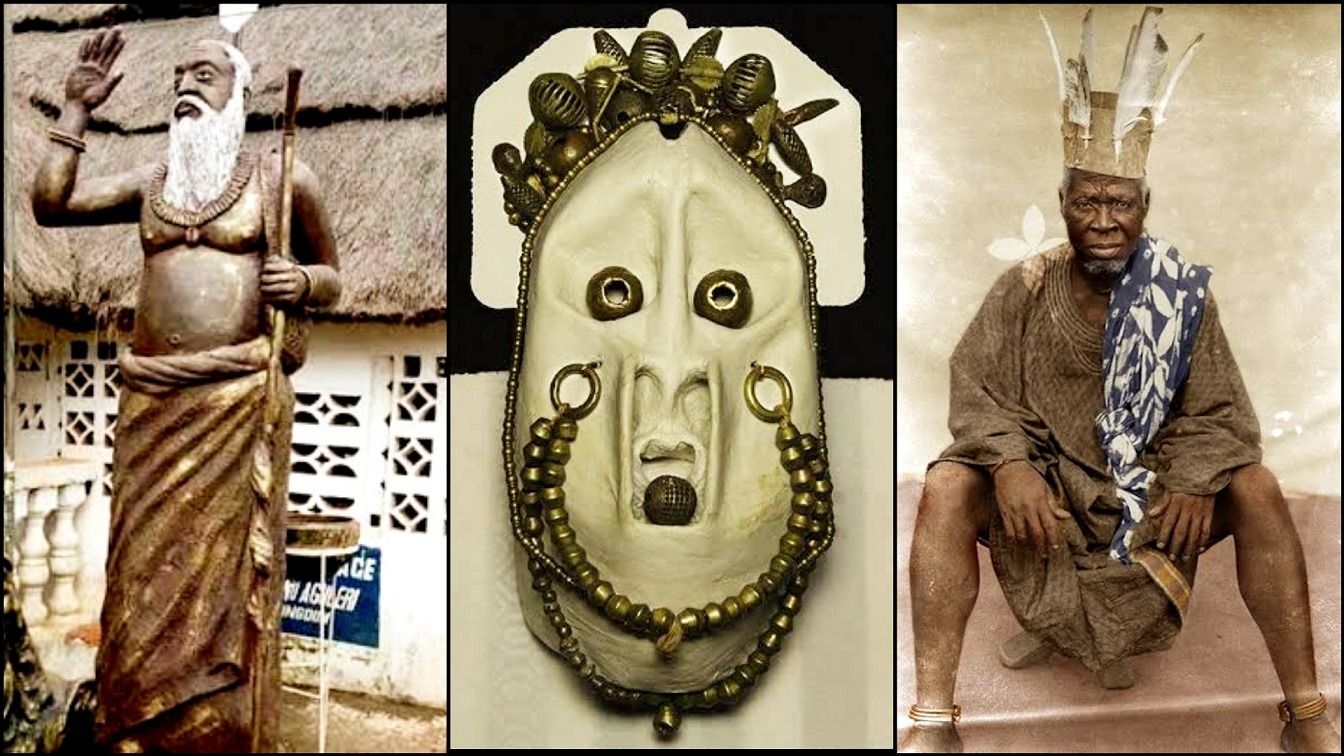
There are different accounts of the origin of the ÌGBÒ people; none has ultimate evidence for its claims. But the most popular record of the ÌGBÒ antecedent is traceable to the Nri Kingdom. This is so because the facts around the Nri Kingdom are closely related to the ÌGBÒ cosmology and imbued in the cultures and legends of various ÌGBÒ towns and peoples, scattered all over ani ÌGBÒ.
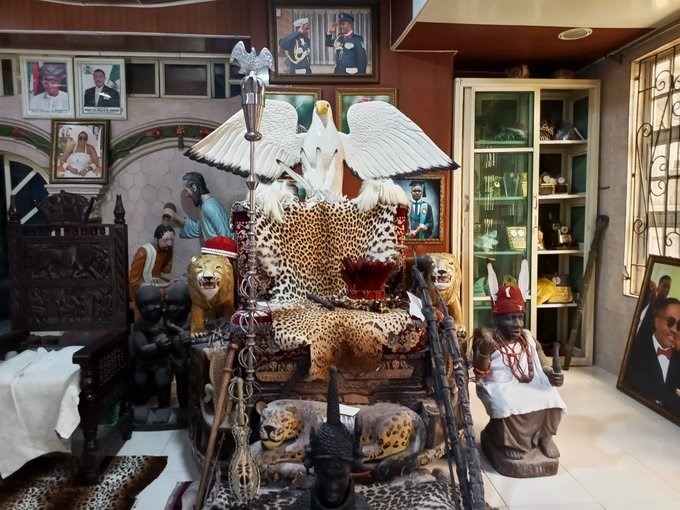
Nri is popularly regarded as the ancestral home of the ÌGBÒ people. While many argue Aguleri to be the actual motherland of Ndi ÌGBÒ, facts also prove the Nri Kingdom as the genesis of ÌGBÒ civilization. According to some ÌGBÒ myths, the first ÌGBÒ man is Eri. He is believed to have descended from heaven into today’s ÌGBÒ region to start the ÌGBÒ civilization.
He occupied where is known today as Ora Eze (Nri Kingdom). Thus, the Nri culture began to take shape around AD 900 in the Omambala river vicinity, where Eri established the Eri clan. As time developed into AD 1000, his son and family migrated to Nri town and settled there. Ndi ÌGBÒ, just like other early men, were nomads who moved from one place to another in search of food, water, safer clime, etc.
The population increase motivated them to set up a system of government that would direct their affairs. For this cause, the Nri Kingdom was established – a politico-religious hegemony that birthed the archetypal ÌGBÒ Civilization. The establishment neared its prime between the 13th and 17th centuries but was dissolved by the British administrators and missionaries in the late 17th century (1911 – 1934).
While many believe the above account to be a fact because it supports the claim that Ndi ÌGBÒ are aborigines of Africa, there is, however, a dissimilar account of the Eri folklore: Story has it that Eri was the son of Gad, son to scriptural Jacob. Eri, according to the story, lived in Egypt as a high priest. When he sensed the impending slavery of his people, he escaped through the river Nile, and later settled with his people ashore, near the confluence of the Ezu and Omambala Rivers called Agbanabo or Ezu Na Omambala. He had a son named Nri. Nri also possessed similar priestly and spiritual powers to his father’s and was appointed as his heir. As Nri got older, he vacated his father’s house to establish his abode called Nri – named after him. The result of this establishment – Nri Kingdom – is what we will discuss in a later paragraph of this article.
However, the British colonists had difficulties implementing their indirect rule system in the ÌGBÒ region because the ÌGBÒ political system did not permit them to do so – ÌGBÒ Enwe Eze (The ÌGBÒ have no king); a term that enshrines the decentralized ÌGBÒ leadership setting. The reality was simply that the British could not usurp the already functional Nri Kingdom. Ndi ÌGBÒ are known to be rebellious when fighting for their right. They have proved this over time. It is also important to note that the indirect rule system of the British worked in every other region except in Igboland. Also, the Ora Eze was effective before and after the advent of the British. The following paragraph will discuss how The Nri Kingdom served as a Pillar of Igbo Civilization.
Conceptual Beings/Heritage of Nri
Ndi ÌGBÒ entwine religion in their politics. They believe that the two are juxtaposed and therefore, should be combined to solve the problems of governance in ani ÌGBÒ. Nri people are ancient farmers, traders, and Traditional Priests. The Nri cosmology interweaves 5 basic concepts: Chukwu, Alusi, Mmuo, Uwa, and Mmadu.
Chukwu is a combination of chi-ukwu which means the almighty god – creator of all things. There are four basic manifestations of Chukwu;
Anyanwu – Sun
Agbala – the fertility of the earth and all the inhabitants.
Chi – one’s personal god.
Okike – creator of everything visible and invisible and of the laws that govern them.
Alusi, however, means evil should stop. (Alu Kwusi) Alusi is the force that manipulates the hidden laws to shower good/evil unto the visible world. There are four types of Alusi.
Alusi, established by Chukwu: Ana, Igwe.
Alusi, established by Eri-Ifejioku: Eke, Orie, Afo, Nkwo.
Alusi, established by the ancestors: Idemmili, aro.
Agwu – a supernatural force that is associated with Afa. It reveals the secret of the invisible and visible world to Dibia – seer, soothsayer.
Mmuo; basically spirits. The Nri people believe in the existence of spirits.
Uwa which means earth, and lastly;
Mmadu; which means human beings. The Nri people as well as all Ndi ÌGBÒ believe that all these five concepts are related. They also treat them with great reverence.
Nri Kingdom And Priesthood King
The Nri Kingdom is one of the oldest existing monarchies in ani ÌGBÒ. The origin of the ÌGBÒ civilization, culture, and religion are credited to this kingdom. The Nri Kingdom existed around AD 900 and also observed a theocratic system of government.
According to Igbo myth, Eri, a divine figure who descended from heaven, is perceived as the first ancestor of the Igbo people. He had a son called Nri. He led the establishment of the Nri Kingdom. Nri Ifikuanim was the first king of this Kingdom (1043 – 1158), ordained by the gods to rule the people of Nri. In Nri, gods reserve the sole power to choose who they appoint a king. The kings are said to be half-human and half-spirit. The king is viewed as the direct link between the gods and the people and must be free of blemishes and sins.
The mandatory rituals involved in the initiation of Nri kings are one of the facts to prove this belief. When the gods appoint a king, there are some significant signs to ascertain the authenticity of his call. To prove this, the symbolical Mgburu will fall in the compound of the appointed person. Also, the discovery of the new king could be through Igba Afa.
The installation of a king in Nri is strictly by spiritual (Agbala) appointment because the system refrains from politics. After this discovery, the appointed king would leave his parent’s house and family to serve the people/gods. He would visit the Agbanabo river of Aguleri, where he’d swim deep inside the river to excavate clay (uro) for molding his Udu Eze, a bronze cup.
When this is done, he goes to a half-house (Okara uno) where he would stay alone for two ÌGBÒ weeks (8 days). While there, they would apply nzu on his body; he eats only nzu and drinks water from the Agbanabo river; nobody is allowed to visit him. This ‘monk period’ is strictly to let him transform from a human to a spirit: Just like the Biblical Jesus, the King is believed to die and resurrect after 3 days. He would also pay homage to all the necessary shrines and deities in Aguleri. If he survives all these, he would be coronated as the King of Nri by the three kingmakers of Nri-Onuko. They would give him an Ikenga – a symbol of ritual power and authority in ÌGBÒ land. The marital status of Nri King is still a mystery as it is not public knowledge.
The king of Nri is said to be infallible. His decrees are final and can not be disputed by anybody. After making a decree, he seals it by beating the gong three times. The king does not sleep on an ordinary bed; he sleeps on a customized traditional bed called Ikpo Eze. This customized bed serves other purposes: After a consensus with his cabinet, the Ndi Ichie (Ancestors), he makes a final decree on the bed. The king performs his early morning ceremonial communion/ritual with the gods on this bed and then beats his gong four times as consultation and greetings to the four Igbo market gods and also, to alert the villagers that he has woken.
As years passed, the Nri Kingdom grew larger and stronger along with its economic growth; it expanded to other parts of ani ÌGBÒ hence the creation of its capital at Igboukwu. The development and success of this kingdom fostered the creation of a banking system and a currency (Okpogho) to ease business transactions. The economy was mainly boosted by agriculture and hunting. Also, in 1952, they built a museum for the safekeeping and exhibition of artifacts and heirlooms of past kings of the Nri kingdom.
However, the kingdom did not possess supremacy over all of ani ÌGBÒ, even at its peak. This is because the kingdom practiced Theocracy, and also due to the decentralized nature of ÌGBÒ land. The kingdom succeeded in wielding undisputed power over its territories. It was the centre for all ÌGBÒ cultural and economic activities, and its influence transcended ÌGBÒ land.
The kingdom served as a custodian of peace and harmony and, as such, prohibited war and violence of any form. Therefore, the Nri kingdom was void of military force, so allegiance was by ritual oath. Peace, wisdom, justice, and harmony were the bedrock of their philosophy. The peaceful nature of the Nri Kingdom is attributed to their belief that violence was an abomination that soiled the earth. The kingdom became a refuge for fugitive slaves, outcasts, commoners, etc.
The Nri kingdom became so strong that it proved resistant to the British colonist and the slavers. But unfortunately, in 1911, the British troop forced the incumbent Eze Nri to renounce his Ikenga. This led to the dissolution of the ancient Nri Kingdom. However, after the Nigeria Independence, the Nri Kingdom continued to reclaim its relevance in ÌGBÒ land. The Kingdom still holds a strong effect and influence in ÌGBÒ land and would always be remembered as one of the architects of ÌGBÒ civilization.
This Piece Was Written By Chidera Oti and Edited By Chuka Nduneseokwu
Editor’s Note: We are dedicated to providing factual reports of history, news, opinions, and discussions on the people of the South-East of Nigeria. We are open to questions, contributions, and corrections on the topics we chose to share. Please feel free to drop your comments below, or send us an email at info@voiceofthesun.com. We promise to attend to your inquiry, reply to you and act on your request within a week. Please also endeavor to share our publications, to help us reach more of our people.
-
![How Igbo People Started Becoming Christians 181 Years Ago (1841–2022): A Brief History Of Christianity In Ìgbòland [Part I] How Igbo People Started Becoming Christians 181 Years Ago (1841–2022): A Brief History Of Christianity In Ìgbòland/Among The Ìgbò [Part I]](https://voiceofthesun.com/wp-content/uploads/2022/07/How-Igbo-People-Started-Becoming-Christians-181-Years-Ago-1841–2022-A-Brief-History-Of-Christianity-In-Igboland-Among-The-Igbo-Part-I-1-400x240.jpg)
![How Igbo People Started Becoming Christians 181 Years Ago (1841–2022): A Brief History Of Christianity In Ìgbòland [Part I] How Igbo People Started Becoming Christians 181 Years Ago (1841–2022): A Brief History Of Christianity In Ìgbòland/Among The Ìgbò [Part I]](https://voiceofthesun.com/wp-content/uploads/2022/07/How-Igbo-People-Started-Becoming-Christians-181-Years-Ago-1841–2022-A-Brief-History-Of-Christianity-In-Igboland-Among-The-Igbo-Part-I-1-80x80.jpg) Igbo History and Origins3 years ago
Igbo History and Origins3 years agoHow Igbo People Started Becoming Christians 181 Years Ago (1841–2022): A Brief History Of Christianity In Ìgbòland [Part I]
-
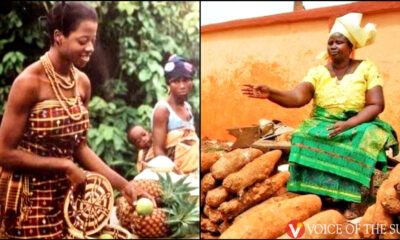
 Igbo Cultures And Traditions3 years ago
Igbo Cultures And Traditions3 years agoThe Four Igbo Market Days and Their Significance In Odinala na Omenala ÌGBÒ
-
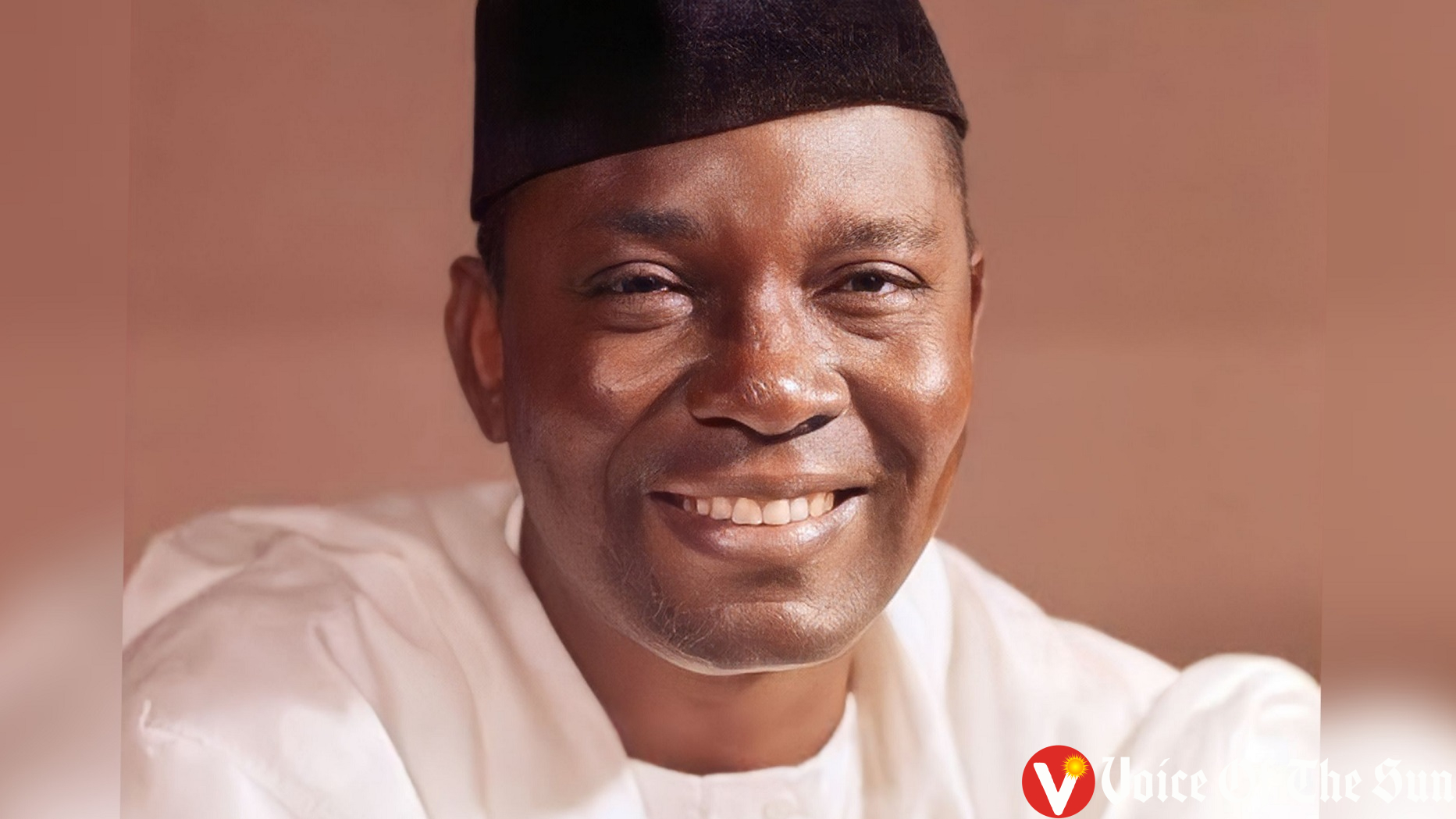
 Igbo History and Origins2 years ago
Igbo History and Origins2 years agoNnamdi Azikiwe: Legacy of a Nigerian Nationalist And Igbo Icon
-
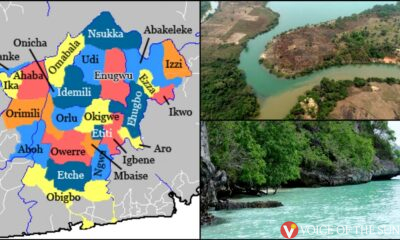
 Igbo News3 years ago
Igbo News3 years agoIgbo Land Is Not Landlocked – We Have The Deepest And Shortest Access To The Atlantic Ocean
-
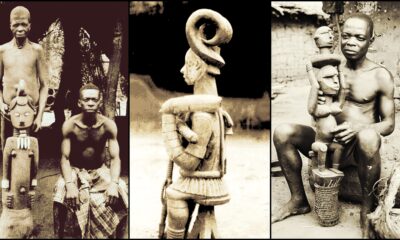
 Igbo Spirituality2 years ago
Igbo Spirituality2 years agoÌgbò Ancestors Did Not Worship Idols and Demons – A Journey Into Ịgọ Mmụọ In Odinana Ìgbò
-
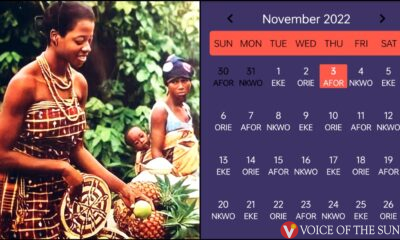
 Igbo Cultures And Traditions2 years ago
Igbo Cultures And Traditions2 years agoWhich Igbo Market Day Is Today – Get The Complete Igbo Calendar
-
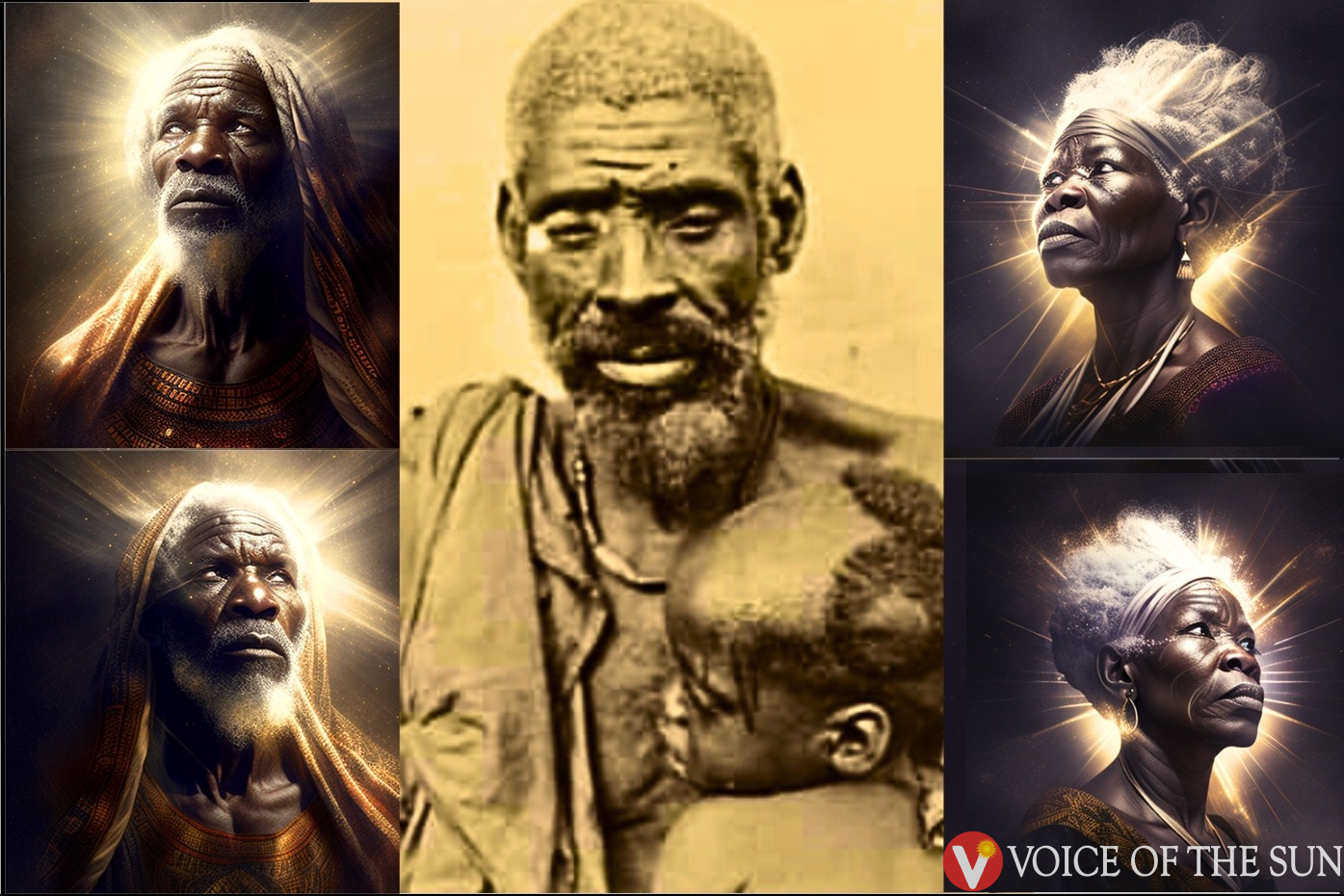
 Igbo Spirituality2 years ago
Igbo Spirituality2 years agoUnderstanding Ndị Ịchie In Igbo Cosmology: Who Are Ndi Ichie In Odinana na Omenana Ìgbò?
-
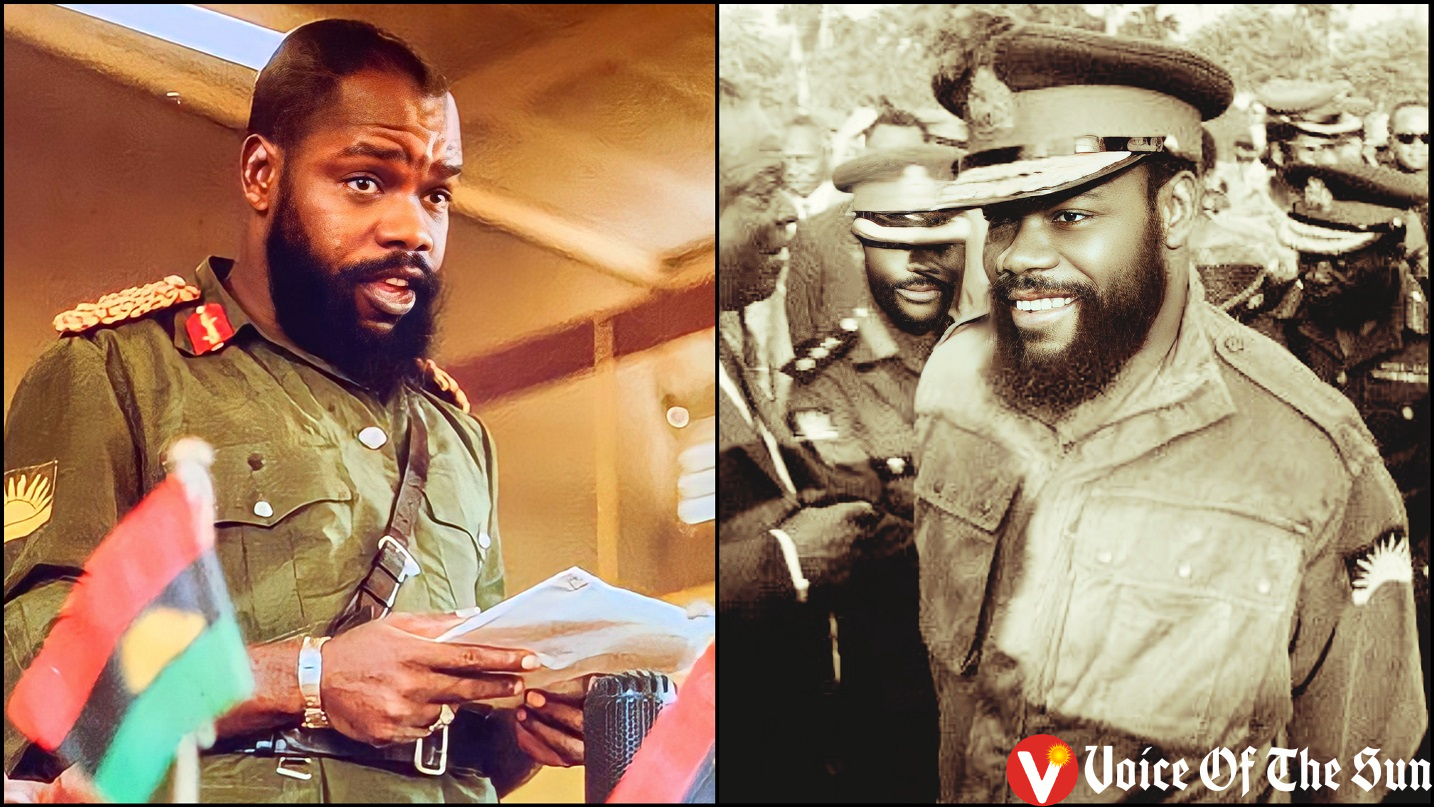
 Igbo History and Origins2 years ago
Igbo History and Origins2 years agoChukwuemeka Odumegwu Ojukwu: The Life And Legacy Of An Igbo Hero

